
Summer School 2022 programme
The Energy Community Summer School programme offers a combination of course work, guest lectures and social / cultural activities. More than 39 lectures contribute to the programme. During the training, participants will attend lectures taught by high-level scholars from academia as well as experts and practitioners from leading energy companies etc.
Below please find the Summer School 2022 programme and information on the speakers.
-
Welcome Saturday
17:00 - 20:30 Welcome Saturday
Welcome Saturday
The 20th of August 2022 marks the beginning of an incredible learning experience, as from 17:00 until 20:30 you are welcomed to the Faculty of Political Sciences of the University of Sarajevo for the start of the 2022 Energy Community Summer School. This edition we welcome participants from a variety of nationalities, generating a cultural mixture of students, which will certainly benefit both the formal and informal learning experience during the summer school. This special day will be moderated by Prof. dr. Sead Turčalo - Dean of the Faculty of Political Sciences of the University of Sarajevo. Mr. Turčalo will be joined by Mr. Rifat Škrijelj, Rector of Sarajevo University, Mr. Ralf Melzer, Head of Office - FES SOE, Mr. Staša Košarac - Minister of Foreign Trade and Economic Relations of Bosnia and Herzegovina and Prof. Dr. Dirk Buschle, Deputy Director of the Energy Community Secretariat and the Dean of Summer School.
After the opening ceremony, all participants will be kindly invited to join the welcoming dinner to be held within the premises of the University of Sarajevo.
-
Social Sunday
08:30- 19:30 A guided tour
Visit to Herzegovina - Power Plant & Wind Farm
Social Sunday Highlights
- War Tunnel Sarajevo
- Trip to Herzegovina:
- Part I - visiting a small hydro power plant Doljanka/Jablanica
- Lunch in Blagaj
- Part II - visiting a Windfarm Podvelezje
- Departure to Sarajevo
- Garden Dinner - FES SOE Office
-
Technical Monday
Technical Monday Mentor
Matus Misik
Associate Professor at the Department of Political Science, Comenius University
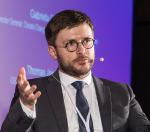
Matúš Mišík, PhD is Associate Professor at the Department of Political Science at Comenius University in Bratislava. His main research interests include energy security in the EU and the role of perception within EU decision-making mechanisms. He is the author of ‘External Energy Security in the European Union’ (Routledge, 2019) and co-editor of ‘From Economic to Energy Transition - Three Decades of Transitions in Central and Eastern Europe’ (Palgrave, 2021) and ‘Energy Humanities - Current State and Future Directions’ (Springer, 2021). He has published articles in energy policy journals including Nature Energy, Energy, Energy Policy, Geopolitics, Czechoslovak Psychology, Journal of Popular Culture, Comparative European Politics, Asia Europe Journal and Slovak Sociological Review.
09.00 - 10.00 Engineering Essentials: Introduction to Energy Systems
Inga Beyers
Research Associate / PhD Candidate at the Leibniz University of Hannover
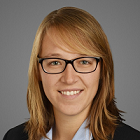
As a Research Associate at the Leibniz University of Hannover, Inga Beyers currently pursues a PhD at the Institute of Electric Power Systems on the physical modelling of energy storage systems. She has always had a passion for teaching engineering and for making the intricacies of our energy system accessible and understandable – which she hopes to contribute to the 2021 Summer School. Born and raised in South Africa, Inga Beyers moved to Germany for her university studies. While finishing her Master’s Degree in Energy Engineering, she participated in the 2019 EC Summer School in Krakow.
10:00 - 11:00 Energy Regulation
Milka Mumovic
Electricity and statistics expert, Energy Community Secretariat, Austria

Milka Mumovic is a graduate economist with substantial experience in energy business, energy regulation and energy policies. She worked for power utility Elektroprivreda Republike Srpske as a project accountant and manager on several key projects during the restructuring process. In the Regulatory Commission for Energy of Republic Srpska, she was responsible for energy tariffs and market, designing and preparing the rules for energy market functioning and monitoring. She has been working for the Energy Community Secretariat since 2009. Her main tasks are to monitor implementation of the electricity acquis, and implementation of the acquis on energy statistics. In addition, she is coordinating the activities of the ECDSO-E, a platform for cooperation of distribution system operators. As power sector economics expert, she has developed and contributed to numerous policy guidelines and recommendations covering a spectrum of policy instruments, from costs and tariffs to taxation and public procurement regimes with a view to identify obstacles for market integration.
11:20 - 12:20 Flexibility of Energy Systems
Jasmina Trhulj
Head of Electricity Unit, Energy Community Secretariat
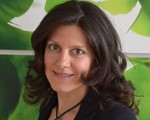
Jasmina Trhulj is a Diploma Electrical Engineer for Power Systems employed as Head of Electricity Unit at the Energy Community Secretariat with a 22-year professional career dedicated to electricity market development in line with EU acquis. Employed at the Secretariat since May 2013, her responsibilities include activities on facilitating energy transition and electricity market development in the EnC Contracting Parties and their integration at regional and Pan-European level. She was also a manager of an EU-funded project for regional energy market connectivity in the Western Balkans. Ms. Trhulj obtained seven years of regulatory experience at the Energy Agency of the Republic of Serbia (AERS) as senior expert for electricity, responsible for the development and monitoring of the electricity market in Serbia. With a degree from the School of Electrical Engineering of the University of Belgrade, Serbia, she is the author of numerous papers and articles published and presented in national and international conferences.
13:40 - 14:40 The fuel of the Green deal: Electrons vs Molecules
Davor Bajs vs Karolina Čegir
Electricity Infrastructure Expert

Gas Expert at the Energy Community Secretariat, Austria 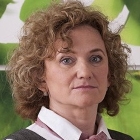
Davor Bajs was born in 1970 in Croatia. He studied at the Faculty of Electrical Engineering and Computing in Zagreb (B.S. and M.S.), and the Faculty of Electrical Engineering in Split (Ph.D.). He works in the Energy Community Secretariat as electricity infrastructure expert. Before that, he was with the Energy Institute Hrvoje Pozar in Croatia where he held the position of senior researcher in electricity transmission issues. Furthermore, Mr. Bajs has been collaborating with the IAEA, giving lectures about power system studies and NPP-grid interface topics. His fields of interest include transmission system planning, power economics and market issues. His past activities include more than 100 studies in the energy sector and around 50 papers published at international and Croatian scientific journals and conferences proceedings.
Karolina Čegir is currently holding the position of Gas Expert with the Energy Community Secretariat. She graduated from Zagreb University as a petroleum engineer, and also she is holding MSc degree in Renewables from the Technical University of Vienna. She has 15 years of experience in the transmission of natural gas in Croatian TSO, and more than 13 years of experience with the Energy Community Secretariat as a Gas Expert and person responsible for biofuels.
15:00 - 16:00 The Energy Community: Experiences and future
Artur Lorkowski
Director of the Energy Community Secretariat
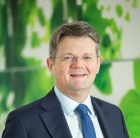
Before the appointment, Artur Lorkowski was Vice-President of the Management Board of Poland’s National Fund for Environmental Protection and Water Management. In the fund, he oversaw the work of climate change adaptation, water protection, external funds, zero-emission transport, monitoring, restructuring and recovery, LIFE, innovation, and public aid. Artur Lorkowski is a graduate of the Warsaw School of Economics and the National School of Public Administration.
Artur Lorkowski was the deputy director at the Ministry of Foreign Affairs responsible for energy security and climate change until 2013. Between 2018 and 2019, he served as a special envoy of the minister of foreign affairs for climate affairs. Between 2013 and 2017, he was the ambassador of Poland in Austria.
16:00 - 17:30 Group Work: Innovation in the Energy Sector
Frantisek Podzimek, Petr Krejcir
Frantisek Podzimek, Siemens, Head of Digital Enterprise and Business Development
František Podzimek works for Siemens Czech Republic as Head of Digital Enterprise and Business Development. As a member of the Board of Directors of Industry Cluster 4.0 and Member of the Executive Committee of Czech National Center for Industry 4.0, he drives creation of public-private-academic ecosystems supporting transition of Czech industries to 4.0 state.
Throughout his career he worked several years in business development and project management roles for European utilities Energie AG Oberösterreich, VERBUND Austrian Hydro Power and ČEZ and supported several international brownfield and greenfield power plant construction projects.
František Podzimek has university degrees in Economics & commercial law from Prague University of Economics and Business and in Manufacturing technology & management from Czech Technical University in Prague.
Petr Krejcir, Siemens, Head of Smart Infrastructure, Regional Solutions & Services Europe
In his professional life Petr focuses on smart building technologies, smart solutions, IoT and digitalization.
The next main topic is energy, networks, renewables, and their connections with smart buildings.
Buildings will play a vital role in an energy network transformation as they can help the network with balancing and flexibility, which will be needed for a new modern energy system with a high share of renewables and accumulation.
Before his current position, Petr has been Managing Director at Schneider Bohemia, Sales Manager at Tooltechnic Systems CZ, Marketing Specialist, and International Trainer at Narex.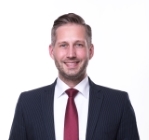
17:30 - 18:30
After Class Group Work Preparations
-
Economic Tuesday
Economic Tuesday Mentor
Prof. dr Amila Pilav-Velić
Associate professor at the School of Economics and Business, University of Sarajevo

Prof. dr Amila Pilav-Velić is an associate professor at the School of Economics and Business, University of Sarajevo. She completed PostDoc research at Freie Universität Berlin, Chair for Innovation Management. Her main areas of expertise are Business and Economics, Innovation management, particularly Open Innovation and Business Model Innovation, Monitoring and Evaluation. Also, she has considerable knowledge and extensive experience in EU funding programmes and projects. Amila is an author of numerous research papers and studies, including the first book on innovation in BIH entitled: „Innovativeness of BIH companies: open or not“. She is the founder and general manager of the first regional conference on innovation– the Sarajevo Innovation Summit. She is the leader of the Center of Excellence for Evaluation and Policy Research. Amila is the founder of the first university incubator in the country. Currently, she is managing two significant projects – PEER (Partnering for Excellence in Evaluation and Research), funded by USAID and Mobilizing Innovation System in BIH with Fraunhofer Institute Karlsruhe, Germany.
09:00 - 10:00 Economic Essentials: Introduction to Energy Markets
Arben Kllokoqi
Electricity Expert for the Energy Community Secretariat, Austria

Arben Kllokoqi works as Electricity Expert for the Energy Community Secretariat, supporting electricity market reforms in the Contracting Parties as well as REMIT implementation, market coupling and cross-border balancing. He is actively involved in the implementation of CACM, FCA and Clean Energy Package in the Energy Community and is closely involved in the work of its Regulatory Board. Mr. Kllokoqi has more than 15 years of experience in the energy industry and previously worked at London based trading firm, EDF Trading, as Regulatory Advisor covering regulatory affairs across European markets. There, he was involved in a wide range of commercial, regulatory and compliance activities, including direct involvement through EFET in different stakeholder groups and committees, in particular related to market network codes and related framework. Before joining EDF, he was working with the Regulator on Market Monitoring and the TSO in Kosovo on defining and implementing market mechanisms and access to the grid.
10:00 - 11:00 Regional integration of energy systems
Nicolas Kuen
DG Energy Team Leader at European Commission 
Nicolas graduated from Louvain School of Management (MBA), University of St. Gallen and College of Europe. Before joining the European Commission, he worked as an advisor for Commission for Electricity and Gas Regulation (CREG) in Belgium and as head of power asset regulation and analysis at ENGIE.
11:20 - 12:20 Markets and Crisis: the price surge and its consequences
Alberto Pototschnig
Part-time Professor and Deputy Director (World of Practice)
Florence School of Regulation, Robert Schuman Centre for Advanced Studies, European University Institute, FlorenceDirector, DFC-Economics, Milan
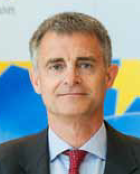
Alberto Pototschnig is part-time Professor and Deputy Director for the World of Practice at the Florence School of Regulation – European University Institute, where he has been teaching on energy regulation and market design since 2004. Since October 2020, Alberto is also a Director of DFC-Economics, a consultancy outfit providing independent economic analysis and advice on complex business and regulatory issues.
From 2010 to 2019 he was the first Director of the EU Agency for the Cooperation of Energy Regulators (ACER). Before joining the Agency, from 2006 to 2010, Alberto was a Partner in Mercados EMI, a Madrid-based international consultancy specialising in the energy sector, where he served as CEO and Deputy Chairman. He previously worked at the Italian Transmission System Operators (from 2003 to 2005), served as the first CEO of the Italian Electricity Market Operator (from 2000 to 2003) and in the Italian Energy Regulatory Authority (AEEG, from 1997 to 2000), with his final position being Director of Electricity Regulation. Alberto started his professional career in 1989 with London Economics, an international economic consultancy, where he was eventually in charge of the industrial economic advisory practice. Between 2003 and 2005 Alberto also acted as an adviser to the Italian Government on environmental and climate policy issues.
Alberto holds a Degree in Economics from Bocconi University in Milan and an MSc in Econometrics and Mathematical Economics from the London School of Economics, University of London.
13:40 - 14:40 Promoting Renewables the Smart Way
Ana Amazo
Managing Consultant
Guidehouse

Ana Amazo is a Managing Consultant in Guidehouse’s Energy, Sustainability, and Infrastructure practice. Ms. Amazo is an expert in the analysis of market environments, investment conditions, and regulatory frameworks for the promotion of renewable energy. She supports governments and international organizations like EBRD, USAID, the European Commission, and DFD in the design and implementation of renewable energy auctions for countries such as Serbia, Kosovo, Armenia, India, Bangladesh, Lao PDR, the Philippines, Papua New Guinea, and Tanzania. Ms. Amazo is a frequent speaker and trainer on renewable energy auctions at international conferences and regulatory working group meetings. Ms. Amazo holds a bachelor’s degree in Government and International Relations from Universidad Externado de Colombia, and a master’s degree in Public Policy from the Hertie School of Governance. She is a Green Energy Finance Specialist from the Renewables Academy (RENAC).
15:00 - 16:00 Utilities, drivers of or being driven by the transition?
Susanne Rompel
Vice President, Political Affairs at E.ON 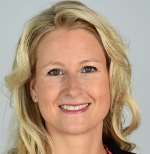
Dr Susanne Rompel is Vice President of Political Affairs at E.ON. She has extensive experience in European energy policy and the energy sector. Prior to her current role Dr Rompel led the EU Representative offices of Innogy and RWE. Before that, she headed Strategic Planning at RWE, where she was responsible for the Group’s strategy development. She also served as a member of the Supervisory Boards for RWE Supply & Trading and RWE GBS. Early in her career, Susanne Rompel gained experience in the Directorate General for Energy of the European Commission. She holds a Master’s Degree in European Politics and Administration from the College of Europe in Bruges and a PhD in EU Energy Policy from Heidelberg University. Prior to this she studied Politics, Law and French in Heidelberg and Aix-en-Provence.
16:00 - 17:30 Group work: Energy Trading
Arnold Weiss
Head of Vienna Office of EPEX SPOT
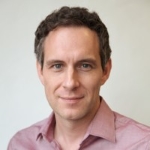
Since 2013 Arnold is a Head of Vienna Office of EPEX SPOT, the European Power Exchange headquartered in Paris being the marketplace for short-term power trading in 13 European countries.
He is part of the public & regulatory affairs team and particularly in charge of representing EPEX in Austria, Luxemburg, Poland, CEE/SEE and at EU level. Acting as member of working groups and steering committees with regional and European scope, he monitors and evaluates energy market regulation, oversees regulatory implementation projects, reports on characteristics regarding EPEX’s strategy, development and business design, and finally establishes and fosters the relationship with local, regional and international stakeholders.
Before, he worked in the energy sector for ten years as legal counsel, compliance manager and head of the respective staff units.
He is a frequent lecturer on energy law and economics at various universities in Austria and Liechtenstein. Also, he is a contributor and speaker at numerous conferences in Europe, China and India.
17:00 - 18:00 After-class group-work preparations
After-class Group work preparations
-
Political Wednesday
Political Wednesday Mentor
Joanna Dyduch
Associate Professor at the Jagiellonian University, Krakow
Political scientist and international relations scholar based at the Department of Israel and Levant at the Institute of Middle and Far East
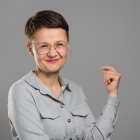
Joanna’s research interests lie in the area of energy studies and area studies (mostly Israel and European studies). Joanna is the author of books and articles on energy policy, securitisation and de-securitisation of energy issues, Europeanisation and de-Europeanisation of member states’ energy policy (especially in its external dimension).
She has participated in several research projects and currently she is a principal investigator in research project “Energy security and increasing international interdependence. Israeli energy policy in transition” funded by Polish National Science Center (OPUS -2022-2025) and co-investigator in European project “Rethinking and Reshaping the EU’s democracy support in its Eastern and Southern Neighbourhood” (HORIZON-CL2-2021-DEMOCRACY-01).
09:00 - 10:00 Political Essentials: Introduction to Energy Policy
Martin Jirušek
Assistant Professor at Masaryk University, Czech Republic 
Martin Jirušek, Ph.D. works as Assistant Professor at Masaryk University, Czech Republic. In his work, Martin focuses on energy security in Central and Eastern Europe (CEE), geopolitics, and the transatlantic dimension of energy security. He is also Managing Editor of the Czech Journal of Political Science and a consultant. Martin has conducted several research projects in Central and Eastern Europe, Russia, and the United States, including a Fulbright scholarship at the George Washington University in Washington, DC in the 2021/2022 academic year.
10:00 - 11:00 RepowerEU: how to get out of dependence?
President of Supervisory Board of National Fund for Environmental Protection and Water Management
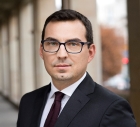
Pawel Pikus holds a PhD degree in law. A graduate of the Faculty of Law and Administration and the Institute of International Relations at the University of Warsaw, as well as the Faculty of Environmental Engineering at the Warsaw University of Technology. Also a graduate of the National School of Public Administration. From 2017, a legal counsel and member of the Regional Bar Association in Warsaw. Director of the Electricity and Gas Department at the Ministry of Climate and Environment with many years of experience in working in public administration as an expert and Deputy Director of the Oil and Gas Department at the Ministry of Energy, previously at the Ministry of Economy. Secretary of the Supervisory Board of the Polish Gas Transmission Operator GAZ-SYSTEM S.A. Member of the Administrative Board of the Agency for the Cooperation of Energy Regulators (ACER).
Has experience in teaching while having lecture on energy law issues, also at the Vienna Forum of European Energy Law. His current professional interests are focused on issues related to the oil and energy sector, both at the governmental and industrial levels.
Since 2022 President of Supervisory Board of National Fund for Environmental Protection and Water Management.
11:20- 12:20 Energy Diplomacy in times of crisis
Vaclav Bartuška
Ambassador-at-Large for Energy Security of the Czech Republic
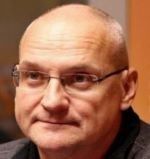
Vaclav Bartuška assumed the position of Ambassador-at-Large for Energy Security of the Czech Republic in 2006. He works on a wide range of issues from oil and gas supplies to energy strategy. During the gas dispute between Russia and Ukraine in January 2009, when the Czech Republic held the EU Presidency, he was involved in negotiations with Russian, Ukrainian, and EU leadership. In 2010, he was appointed by the Czech Government to the Commissioner for expansion at the Temelin nuclear power plant. Since 2003, he has taught modern history and security studies at New York University, Prague campus. Mr. Bartuška also teaches energy security at the College of Europe.
13:40 - 14:40 Geopolitics and European Integration of the Western Balkans
Prof Dr. Sead Turčalo
Dean of the Faculty of Political Sciences at the University of Sarajevo.
Sead Turčalo defended his doctoral dissertation "Realistic Theory of International Relations in the Interpretation of Critical Geopolitics" in June 2014, at the Faculty of Political Science, University of Sarajevo. He teaches Geopolitics, International Security, and Energy Security and Conflict Management in International Relations at the BA and MA levels. In the PhD programme of the University of Sarajevo’s Centre for Interdisciplinary Studies, he is teaching Geopolitics and Global Order courses.
He attended the Leadership Academy for Development organised by the Centre for Democracy, Development, and the Rule of Law at Stanford University. As a researcher, lead researcher or coordinator, he has participated in 15 international and national research projects. He has published five books and four studies, and thirty papers in reference journals and anthologies.
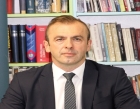
15:00 - 16:00 Climate Diplomacy
Jos Marie R. Delbeke
Professor at the School of Transnational Governance (STG)
Visiting Professor at KU Leuven
EUI's first European Investment Bank Chair on Climate Change Policy and International Carbon Markets ('EIB Climate Chair')

Jos Delbeke is a part-time Professor at the School of Transnational Governance (STG) as well as a Visiting Professor at KU Leuven. In September 2020, he was appointed as the EUI's first European Investment Bank Chair on Climate Change Policy and International Carbon Markets ('EIB Climate Chair'). Jos Delbeke is the former Director-General of the European Commission's DG Climate Action (2010 until 2018). He holds a PhD in economics (Leuven).
Jos Delbeke was heavily involved in setting the EU’s climate and energy targets for 2020 and 2030 and was a key player in developing EU legislation on the Emissions Trading System (ETS), cars and fuels, air quality, emissions from big industrial installations and chemicals (REACH). As an economist, he underlined the role of market-based instruments and of cost-benefit analysis in the field of the environment. He has been responsible for developing Europe's International Climate Change strategy and was for several years the European Commission's chief negotiator at the UNFCCC Conference of the Parties. In that capacity, he played a key role in the EU's implementation of the Kyoto Protocol and in the negotiations on the Paris Agreement.
16:00 - 17:30 Group work: Energy Negotiations
Jolanta Navickaite
Policy Officer in the European Commission Directorate-General for Energy 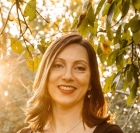
Ms. Navickaite has been a Policy Officer in the European Commission Directorate-General for Energy since May 2021, covering the Energy Community and neighbourhood. Prior to that, she worked as the Lithuanian energy attaché to the European Union. In that position, she represented the Lithuanian position in negotiations on EU policy and legal acts proposals at the Council of the EU (Working Parties, Coreper, and Energy Council) and committees of the EU Commission. She was previously a chief officer at the Ministry of Energy of Lithuania where she worked during the Lithuanian Presidency of the Council of the EU. Ms. Navickaite obtained an LLM cum laude in European Union Law from the Maastricht University.
17:00 - 18:00 After-class Group-Work Preparations
After Class Group Work Preparations
-
Legal Thursday
Legal Thursday Mentor
Selma Šehović
Project Manager at Friedrich-Ebert-Stiftung (FES) Dialogue Southeast Europe 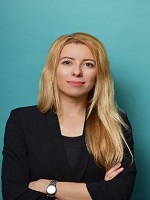
A regulatory lawyer with over 10 years of experience including in policy development. Currently employed at the FES SOE Regional Dialogue as a project manager, managing the portfolio on energy transition and climate change policies in Southeast Europe with a focus on the Western Balkan non-EU countries. Before joining the FES SOE, Selma worked on the transposition of the EU’s Third Energy Package into Bosnia’s legislation, and at the international law firm CMS-RRH providing advice to infrastructure investors and clients on PPA, regulatory compliance, and market opportunities. Selma holds a master's degree in energy and natural resources law from Queen Mary University London
09.00 - 10.00 Legal Essentials: Introduction to Energy Law
Andrius Šimkus
Energy Counsel at Sorainen 
Andrius has been practising energy law for over 16 years. Before joining the largest pan-Baltic law firm Sorainen in May 2022, for 2 years he ran a boutique consultancy – Šimkus Energy Consulting – with active technical assistance projects in Ukraine, Georgia, Albania, and Lithuania. Before that, Andrius spent 5 years as a Gas Expert and Energy Lawyer at the Energy Community Secretariat. He also worked as a General Counsel at LITGRID – the electricity TSO of Lithuania, member of the Board of Directors at Nord Pool Holding, in-house lawyer of several large Baltic energy companies, and external counsel representing major energy stakeholders in the Baltics, Scandinavia, Poland, and Southeast Europe. His legal and energy policy practice covers, amongst others, natural gas (including LNG), electricity, renewables, and nuclear energy. Andrius has a unique expertise in energy legislative matters being an author or co-author of over 200 legal acts regulating energy relations in 17 European jurisdictions. Besides being a lawyer, Andrius has an in-depth understanding of worldwide energy policy, business and development trends and relations.
10:00 - 11:00 Competition and State aid in the energy sectors
Marie-Therese Richter-Kuhnert
Energy Lawyer at Energy Community Secretariat, Austria 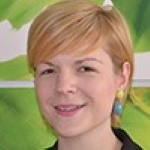
Ms. Richter-Kuhnert joined the Energy Community in 2016 as an Energy Lawyer, mainly dealing with issues of competition and State aid law, dispute settlement cases, assistance to national competition and State aid authorities and training activities. Her previous professional experience consists of different legal positions as legal associate, consultant and legal clerk. Ms. Richter-Kuhnert holds a Master’s (2008) and a PhD degree (2011) from the Faculty of Law, Vienna University where she was also Assistant Professor in the period 2009-2011. She has also published several legal articles.
11:20- 12:20 Energy Law in Practice: Public law
Anna Butenko
Legal Advisor System Operations at ENTSO-E 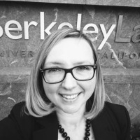
Anna Butenko is an experienced energy lawyer, combining gas and electricity sector expertise with a strong academic background. In addition to her duties as Legal Advisor System Operations at ENTSO-E, Anna is a Senior Research Fellow at the Institute for Energy and the Environment at Vermont Law School.
13:15 - 14:45 Energy Law in Practice: Private Law
Michal Motylewski
Europe Energy Practice Development Counsel, Dentons, Warsaw, Poland 
Michał Motylewski is attorney-at-law in Dentons’ Warsaw office and Europe Energy Practice Development Counsel in Dentons' European Energy Team. Michał specializes in international and domestic regulations relating to Energy Transition and, in particular, in issues relating to the redesign of energy markets towards reaching Climate Neutrality, implementation of the EU’s internal market in electricity and gas reforms in the EU and its Member States (Fit-for-55), development of regulations and investment projects involving new technologies and sectors, among those offshore wind generation, hydrogen and energy storage as well as electrifying national economies.
Michał represents clients on a regular basis in legislative development projects, his advice being of assistance to both private entities and government authorities (Hungary, Ukraine, Uzbekistan) in developing and applying support systems for renewable energy sources, energy storage facilities, capacity markets and implementation of network codes. He also advises clients on strategic investment planning and financial security in the context of regulatory aspects of investment projects covering energy, transportation and the industry.15:00 - 16:00 Climate Justice
Aleksandra Bujaroska
Environmental Expert at Energy Community Secretariat, Austria 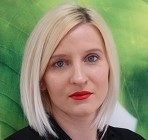
Aleksandra Bujaroska is an Environmental Lawyer with a decade of experience in dealing with compliance, monitoring, and implementation of acquis and policy documents on the environment, particularly on climate topics, environmental impact assessment, strategic environmental assessment, and nature protection across South-East Europe. She is the author of several legal texts on this topic and a member of the IUCN World Commission on Environmental Law.
16:00 - 17:30 Group Work: Dispute Resolution in Energy Matters
Smaranda Miron
Energy Lawyer, Energy Community Secretariat, Austria
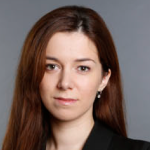
Smaranda Miron is an energy lawyer with the Energy Community Secretariat, an international organisation based in Vienna. She handles energy disputes (cases against the Contracting Parties of the Energy Community), supports the Energy Community Secretariat’s Dispute Resolution and Negotiation Centre and works, together with the competent national authorities, towards a full implementation of the Energy Community acquis. Before joining the Energy Community Secretariat, Smaranda worked as an associate in the International Arbitration Group of Freshfields Bruckhaus Deringer and as a public procurement case-handler with the European Commission.
17:30 - 23:00
Guided tour: Sarajevo and dinner at Tesla restaurant
-
Sustainable Friday
Sustainable Friday Mentor
Naida Taso
Renewable Energy Expert in the Energy Community Secretariat, Austria
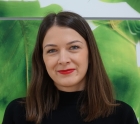
Naida holds a Master (MA) of Electric Power Engineering and is Certified Expert in Climate & Renewable Energy Finance. She has ten years of international experience in areas of renewable energy, sustainable development, energy modelling and electricity markets. Within the Secretariat’s Green Deal Unit, Naida is responsible for activities related to renewable energy. Prior to the Secretariat, Naida worked for the International Renewable Energy Agency (IRENA).
09:00 - 10:00 Sustainability Essentials: Introduction to the Green Deal
Dirk Buschle
Deputy Director/Legal Counsel, Energy Community Secretariat, Austria
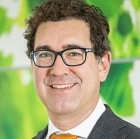
Dirk Buschle is Deputy Director of the Energy Community Secretariat since 2011 and has led its legal unit since 2007. As a Chairman of the Energy Community Dispute Resolution and Negotiation Center, he is also responsible for dispute resolution and negotiations and has acted as mediator in high-profile investor-state conflicts in the energy sector. He is a certified negotiation facilitator. Prior to his current position, Dirk was Head of Cabinet of the President of the Court of Justice of the European Free Trade Association (EFTA) in Luxembourg. Dirk is also Professor and Chair holder of the European Energy Policy Chair at the College of Europe in Bruges. He teaches the annual course “European and International Energy Policy and Governance”. He graduated in law from Constance University, Germany, and earned his Ph.D. at St. Gallen University in Switzerland. He has widely published in different areas of European policy and law, and has lectured at Universities of Reykjavik, Constance and St. Gallen as a visiting professor.
10:00 - 11:00 Climate Diplomacy
Dragana Mileusnic
Programme Manager at the Nature Conservancy (Brussels office)

Ms. Mileusnic directs strategies for renewable energy and nature conservation in the Western Balkans. Prior to joining the Conservancy, she spent 4 years with Climate Action Network (CAN) Europe, advancing policies leading to energy transition in the Western Balkans. Previously, she worked with the German Heinrich Boell Foundation in Belgrade and with the Institute for Entrepreneurship and Economic Development in Montenegro. She holds a master’s degree from Oxford University’s Environmental Change Institute in Environmental Change and Management and a bachelor’s degree in geography & environment from the University of Belgrade, Serbia.
11:20 - 12:20 Carbon pricing
Constanze Haug
Executive Board Member at Adelphi

Constanze Haug is Executive Board Member at Adelphi and co-leads Adelphi’s carbon pricing programme. She is an internationally renowned expert in market-based climate action. During her tenure as head of the Secretariat of the International Carbon Action Partnership (ICAP), she established the organisation as a key actor in global carbon markets. As an experienced strategist, moderator, and trainer, she brings together stakeholders to work collaboratively for enhanced climate ambition.
13:40 - 14:40 Communicating the fight against the Climate Change
FES Team
15:00 - 16:00 Sustainable Finance
Linda Zeilina
Founder & CEO, The International Sustainable Finance Centre, Prague
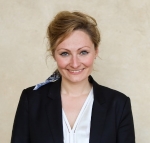
Linda Zeilina is the Founder & CEO of the International Sustainable Finance Centre (ISFC), a think tank focusing on a range of sustainable finance topics, where she oversees the work on sustainable investing and inclusive economies. She is a Fellow at the Royal Society for Arts, Manufactures and Commerce (RSA) in London, and an advisory board member of the Romanian Sustainable Investment and Finance Association (RoSIF). Until very recently, Linda was a Policy Leader Fellow at the European University Institute’s School of Transnational Governance. Over the years, Linda has run consulting projects for large asset managers, pension funds and European investment funds. Previously, Linda was Director at RE-DEFINE, a boutique consultancy and think tank in London, and a Think Visegrad Fellow at the EUROPEUM Institute for European Policy. Linda is an alumna of the University of Glasgow, McGill University and the London School of Economics.
16:00 - 17:30 Group work: Evaluating Sustainability - Prospects of Successful Energy Planning
Ilija Sazdovski
Researcher, UNESCO Chair in Life Cycle and Climate Change, ESCI – UPF 
Mr. Sazdovski works as a Researcher at the UNESCO Chair in Life Cycle and Climate Change and he is a lecturer at the University Pompeu Fabra - BSM. Prior to this, Mr. Sazdovski was a member of the International Association of Energy Engineers and the Scientific Advisory Board of the South-East Conference for Sustainable Development of Energy, Water, and Environmental Systems. He has been working as a project developer and implementer, engaged by USAID, UNDP, and GIZ, providing technical assistance to different stakeholders in the field of energy efficiency. He is the author of the National Energy Monitoring System for local self-governments and the co-author of the III National Energy Efficiency Action Plan 2016-2018 for Macedonia. He worked as an International Expert for the establishment of Monitoring Reporting and Verification systems for greenhouse gases engaged by UNDP. 17:00 - 18:00
After Class Group Work Preparations
-
Energy Debates
Saturday - Mentor
Adrian Jasimi
Summer School Coordinator, Energy Community Secretariat, Austria
Mr. Jasimi joined the Energy Community Secretariat in May 2009 as Oil Expert. Before coming to the Energy Community Secretariat, he worked in the Oil and Gas Institute in Albania until 1994. In 1994, Mr. Jasimi joined the UK oil and gas company Premier Oil as project manager for 10 years. In 2004, he started to work as oil advisor and director of cabinet to the Minister of Energy and Industry of Albania. In 2005, he was reappointed Director of Cabinet of the Minister of Economy, Trade and Energy in Albania until April 2009. Mr. Jasimi is involved in many negotiations in oil and gas contracts. His university background is physicist.
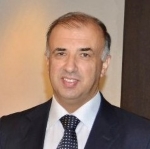
09:00 - 11:30
Energy Debates
The objective of this Energy Debate day is to allow all participants master what they have learned during the course through a debate. There will be 4 statements and for each statement there will be two teams of advocates supporting or disagreeing with the statement. The participants will be required to take a certain position, even something they do not personally believe thus putting the participant in some cases in a not so comfortable situation. However, that is what makes the debate more interesting and afterwards the participants will be also evaluated for their ability to defend a case.
11:30 - 12:45
Farewell Lunch at Faculty of Political Sciences
-
Energy Journalism Workshop
09:30 - 17:45
Energy Journalism Workshop
Mentor: Ema Džejna Smolo-Zukan (FES SOE)
Speaker: Kira Taylor (EURACTIV)
Kira is a freelance energy and environment journalist covering EU policy and politics from Brussels. Kira also regularly gives lectures on energy journalism and related topics.

09.30 – 10.15
Climate change and the energy transition: a story for everyone
10.15 – 11.15
What’s driving change? The scientific, economic, and social cases for decarbonization
12.45 – 13.30
Journalism in the climate and energy space: a working life
13.30 – 13.45
Break
13.45 – 15.15
Decarbonisation for 1.5°C – what does that entail?
15.15 – 16.15
Disinformation and how not to fall for it
16.15 – 16.30
Break
16.30 – 17.30
Storytelling on climate change and the energy transition: data, investigations, photo essays, social media
17.30 – 17.45
Conclusions